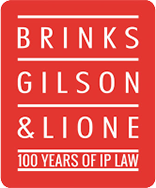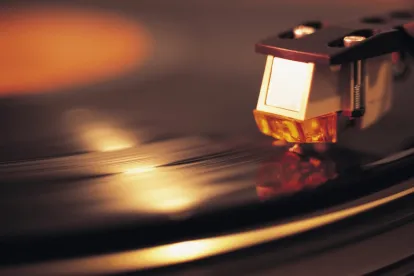On October 11, 2018, President Donald Trump signed the Music Modernization Act (H.R. 1551) into law, marking the passage of significant “landmark legislation” in copyright law that is “expected to benefit the many stakeholders across all aspects of the music marketplace, including songwriters, publishers, artists, record labels, digital services, libraries, and the public at large.”[1]
Background
Originally introduced in the House of Representatives on December 21, 2017, the Music Modernization Act received bipartisan support, addressing “Congress’s [earlier] determination that copyright law has not kept pace with changing consumer preferences and technological developments in the music marketplace.”[2] More specifically, this Act aims to help songwriters and publishers seek fair market royalty rates and to simplify digital licensing for streaming companies.
For additional background information on this law, see here.
Key Components of the Act
The Music Modernization Act has three key components, summarized below:
Title I – Music Licensing Modernization
Title I is directed specifically to digital music licensing.[3] Specifically, Title I seeks to:
|
|
Establish a Mechanical Licensing Collective to administer a blanket license and distribute collected royalties to songwriters and publishers; |
|
|
Provide a blanket license for digital music providers with respect to certain activities, such as downloads and interactive streaming; |
|
|
Create “and maintain[] a database of musical works and sound recordings, which will be publicly available and is expected to become the most comprehensive database in the music industry”[4]; and |
|
|
Set a “willing buyer, willing seller” standard with respect to determining royalty rates. |
For copyright holders, the Act provides a mechanism for taking into account fair market rates and terms when setting royalty rates. For streaming services, the Act affords protection from past infringements.
Title II – Classics Protection and Access
Title II aims to provide “partial” copyright protection to owners of pre-1972 sound recordings.[5] A few important sections of Title II include:
|
|
Extend remedies for copyright infringement of pre-1972 sound recordings to 95 years “after first publication of the recording, ending on December 31 of that year”[6]; |
|
|
Establish a statutory licensing framework “similar to that which applies to post-1972 sound recordings”[7]; and |
|
|
Allow certain lawful uses (i.e., fair use) of these recordings. |
Thus, the Act brings pre-1972 sound recordings partially within federal law.
Title III – Allocation for Music Producers
Title III essentially provides a mechanism for music producers to receive a portion of “royalties collected for uses of sound recordings” under the statutory license provided in § 114 of the Copyright Act.[8]
The full text of the Act is here.
Implications
The Music Modernization Act is an important law that carries significant implications for those in the music arena. Organizations such as the National Music Publishers Association (“NMPA”) and ASCAP have reacted favorably to the Act’s passage.[9] NMPA specifically observes how, “for the first time in history, the music industry has partnered with the tech industry to fix these systemic problems” via this Act.[10] ASCAP further notes that “a more sustainable future for songwriters is finally within reach.”[11]
Additional details regarding how the Music Modernization Act would amend the Copyright Act is available at https://www.copyright.gov/legislation/2018_mma_amendments.pdf.
[1] Orrin G. Hatch–Bob Goodlatte Music Modernization Act, U.S. Copyright Office, https://www.copyright.gov/music-modernization (last visited Oct. 15, 2018).
[2] Id.
[3] Id.
[4] Id.
[5] Id.
[6] Id.
[7] Id.
[8] Id.
[9] See, e.g., Press Release, Nat’l Music Publishers Ass’n, Historic Hatch-Goodlatte Music Modernization Act Signed into Law (Oct. 11, 2018), http://nmpa.org/press_release/historic-hatch-goodlatte-music-modernization-act-signed-into-law; Press Release, Am. Soc’y Composers, Authors & Publishers, The Music Modernization Act Is Now Law: ASCAP Statements on Presidential Approval (Oct. 11, 2018), https://www.ascap.com/press/2018/10/10-09-mma-is-now-a-law?utm_source=ASCAP&utm_medium=email&utm_campaign=inside-music&utm_content=inside-music.
[10] See Nat’l Music Publishers Ass’n, supra note 9.
[11] See Am. Soc’y Composers, Authors & Publishers, supra note 9.





 />i
/>i

